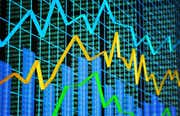Classifying the different types of stock traders currently active is difficult, as there are a wide range of styles and methods, and many traders combine elements of different strategies. Having said that, though, we can broadly group stock traders into three large categories: informed, uninformed, and intuitive.
Informed Traders
Informed traders are those who make investment decisions based on information that they believe will help them to beat the broader market. More generally, informed traders fall into two categories: fundamental and technical traders. We will further examine these categories in the next chapter.
Uninformed Traders
While the name may be somewhat misleading, uninformed traders are those who take the opposite view from informed traders.
Intuitive Traders
Intuitive traders are less fully-formed as a category in comparison with informed and uninformed traders. A trader taking this approach to decision-making will hone his or her general feelings and instincts in order to find particular opportunities to initiate a trade. These traders make use of charts and studies as well, but they rely on their own broader experience when it comes to questions of timing. Intuitive traders would likely not say that they lack information on the stock in question, the company, and the sector. Rather, they focus on patterns they have observed in the price fluctuations of those stocks in order to make their decisions.
In the next chapter, we’ll look specifically at the different types of informed traders.
Informed Traders: Fundamental Traders, Technical Traders
-
 Trading
TradingIntroduction to Stock Trader Types
What type of stock trader are you? -
 Personal Finance
Personal Finance5 Skills That Traders Need
There are many routes to becoming a professional trader, but these five skills will help you get there. -
 Trading
TradingAre You a Trend Trader or a Swing Trader?
Swing traders and trend traders execute market timing strategies that require different skill sets. -
 Trading
TradingDay Trading: An Introduction
This article takes an objective look at day trading, who does it, and how it is done. -
 Trading
TradingThe 10 Worst Mistakes Beginner Traders Make
Traders generally buy and sell securities more frequently and hold positions for much shorter periods than investors, which can result in costly mistakes. -
 Trading
TradingHow much trading capital do forex traders need?
Forex traders can see substantial benefits from capital gains in the form of a small pip profit over time.



